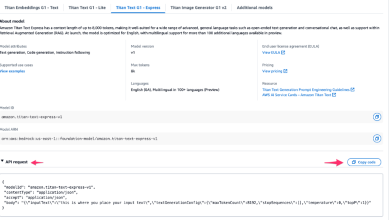Report: Acrolinx Surveys Forbes 2000 Enterprises on Attitudes Toward AI Related to Use, Risk, and Regulation

Since generative AI became mainstream nearly two years ago, society has gained a better understanding of how best to use the technology. However, as the AI landscape evolves rapidly, as a society, we have grown more aware of AI’s risks and limitations.
Acrolinx, the AI-powered content governance software provider, sought to discover where current enterprise attitudes towards AI stand. Today, the company released its report “Generative AI in Business: A Snapshot of Enterprise Use, Risk, and Regulation.” The report surveyed Forbes Global 2000 customers including Adobe, Amazon, Siemens and more to determine what motivates enterprises to use AI and where they are seeing risk in using it, in order to help organizations integrate AI into their operations in a safe way.
Balancing Regulation & Risk with Innovation
AI regulations vary widely across jurisdictions, so enterprises across the board are taking many different approaches to striking the right balance between AI regulation and innovation. When asked if AI innovation should be paused until national regulation is established, 37% of respondents are in favor of innovation being paused until more regulation is established. While many companies await national legislation, nearly 75% of respondents say their enterprises regulate AI internally. This is an increase from Acrolinx’s 2023 generative AI report, where data found 49% of enterprises restrict the use of generative AI.
Over half of respondents view using AI tools as a risk, but almost 18% are unsure as to whether using AI technology is risky, indicating leaders may not fully understand the potential challenges of generative AI. The most paramount risks of AI cited include accuracy and security of information, especially as they relate to AI hallucinations, copyright infringement, and compliance concerns.
The Concerns of AI-generated Content
With individuals unable to differentiate AI-generated content from human-generated content, the impact of content written by generative AI has been a hot point of contention. In fact, almost 80% of respondents think there should be a legal distinction between content created by humans and AI.
From a brand perspective, over 90% are concerned about AI tools misrepresenting their brand, showing content accuracy is a major concern for enterprises. Due to this concern for misrepresentation, over 75% of respondents see AI augmenting their content strategy, as opposed to only 10% that think AI will fully automate their content strategy. Considering the concerns respondents have around content quality, it’s not surprising that they don’t see it fully automating their content strategy.
Workplace Trust in AI is on the Rise
When it comes to using AI in the workplace, sentiments have changed drastically from users fearing AI might take their jobs to embracing it openly. Despite previous fear by workers that AI might replace their jobs, 17.9% of respondents strongly agree and another 45.1% agree that AI proficiency is critical to their job security.
In fact, when it comes to using AI tools, over 54% of respondents said they’re more likely to buy a product that uses AI. One hypothesis is that the efficiency and productivity gains promised by AI, as well as the buzz around it, are compelling enterprises to invest in it. Not only are enterprises invested in using AI to fuel productivity and efficiency, but also customers are willing and generally comfortable with businesses doing so, with 53.8% either “comfortable” or “extremely comfortable” with businesses using AI technology in their interactions with customers.
Sentiments on AI Continue to Evolve
AI is here for the long run, but attitudes toward technology continue to mature in an enterprise context as organizations have a better understanding of the benefits, as well as the risks, associated with AI. However, all this knowledge is empowering enterprises to incorporate AI into their business models with more caution and create a plan to better navigate the future landscape.
Sign up for the free insideAI News newsletter.
Join us on Twitter: https://twitter.com/InsideBigData1
Join us on LinkedIn: https://www.linkedin.com/company/insideainews/
Join us on Facebook: https://www.facebook.com/insideAINEWSNOW



